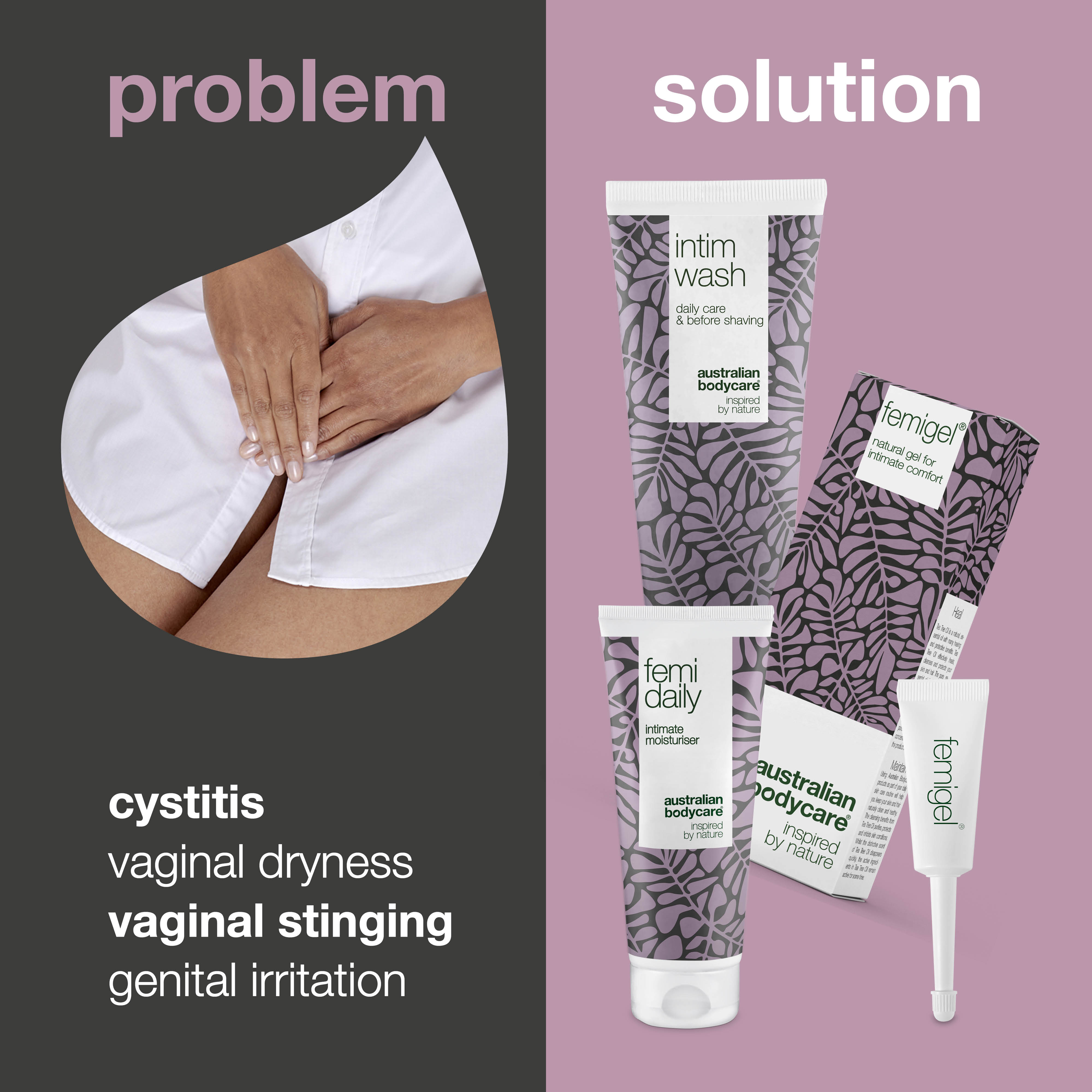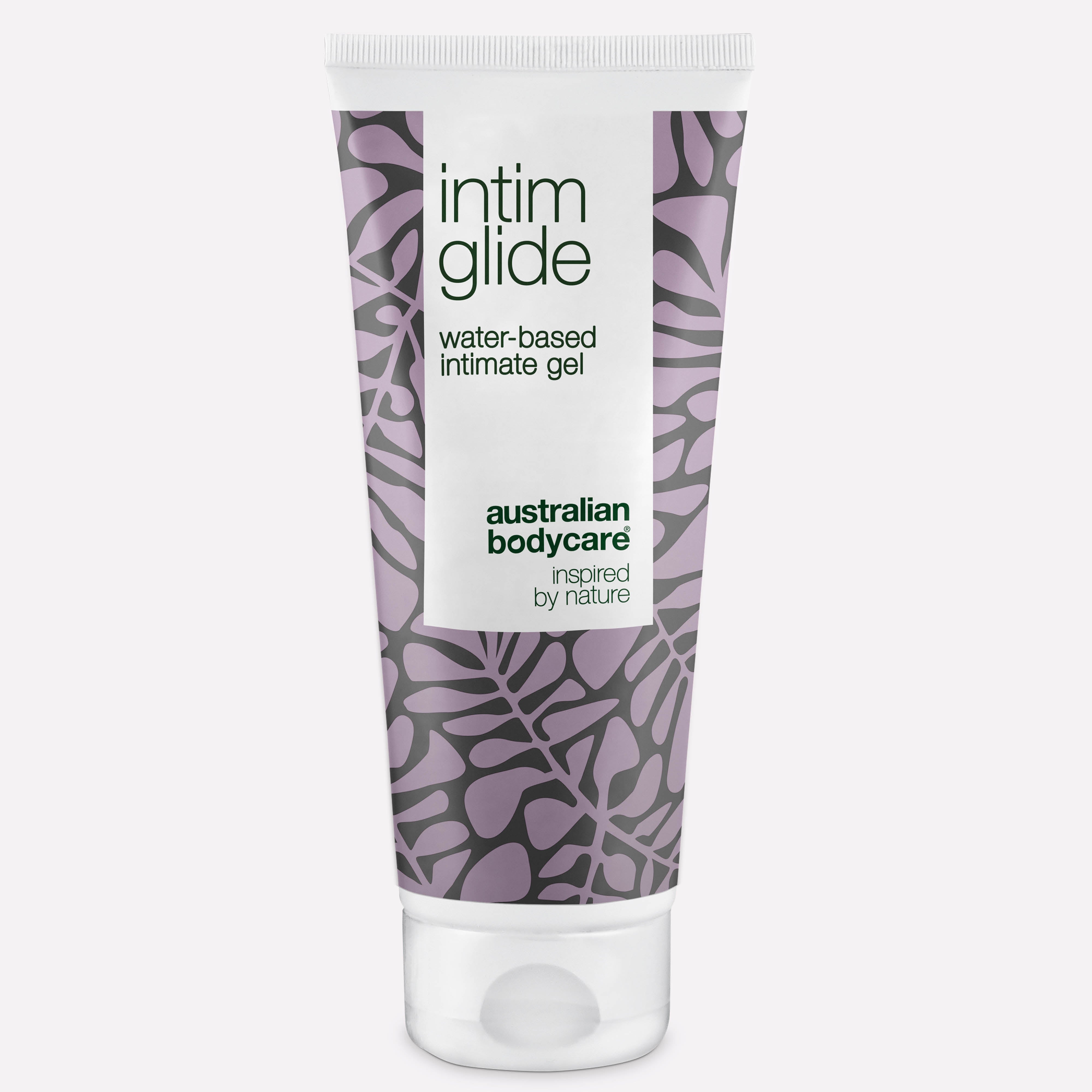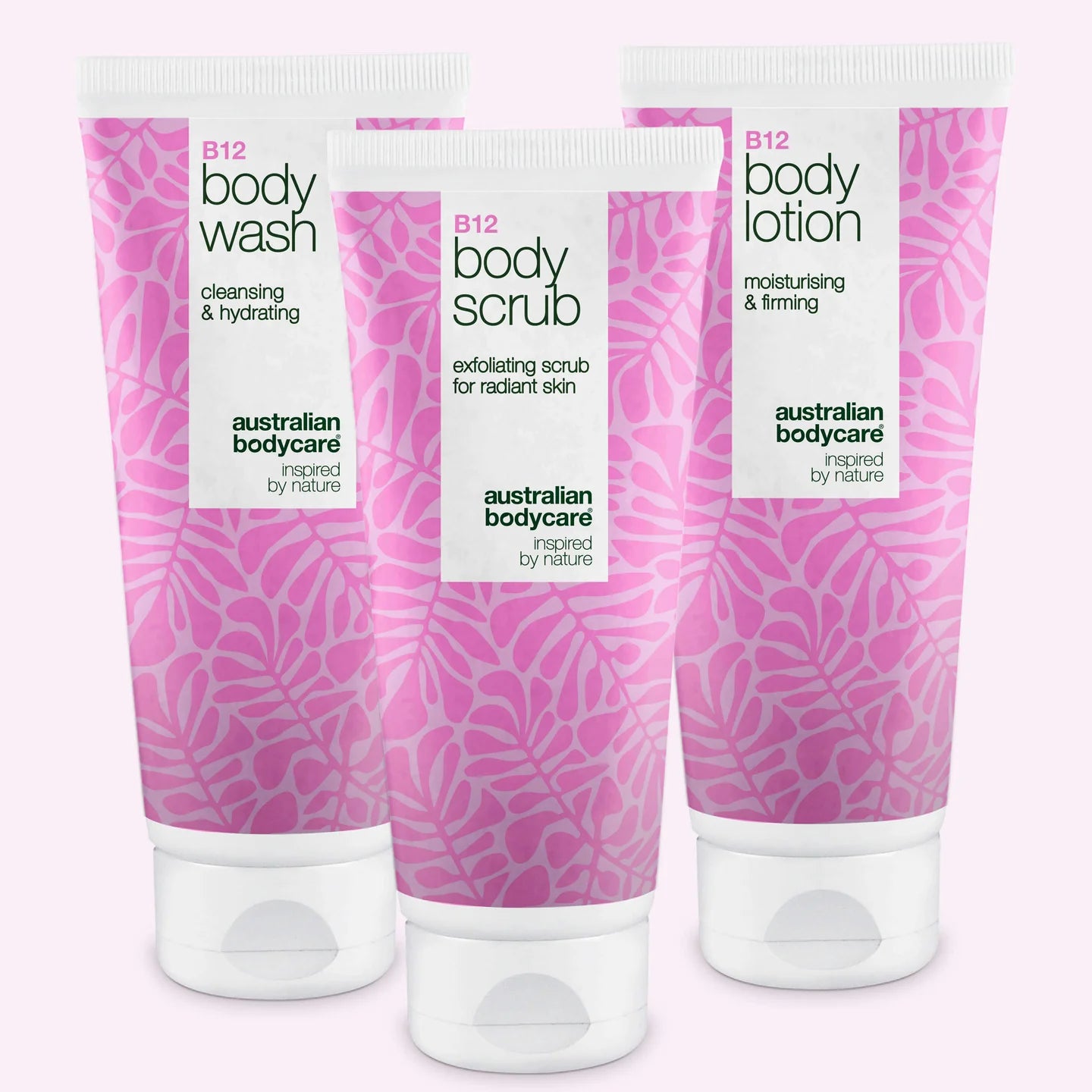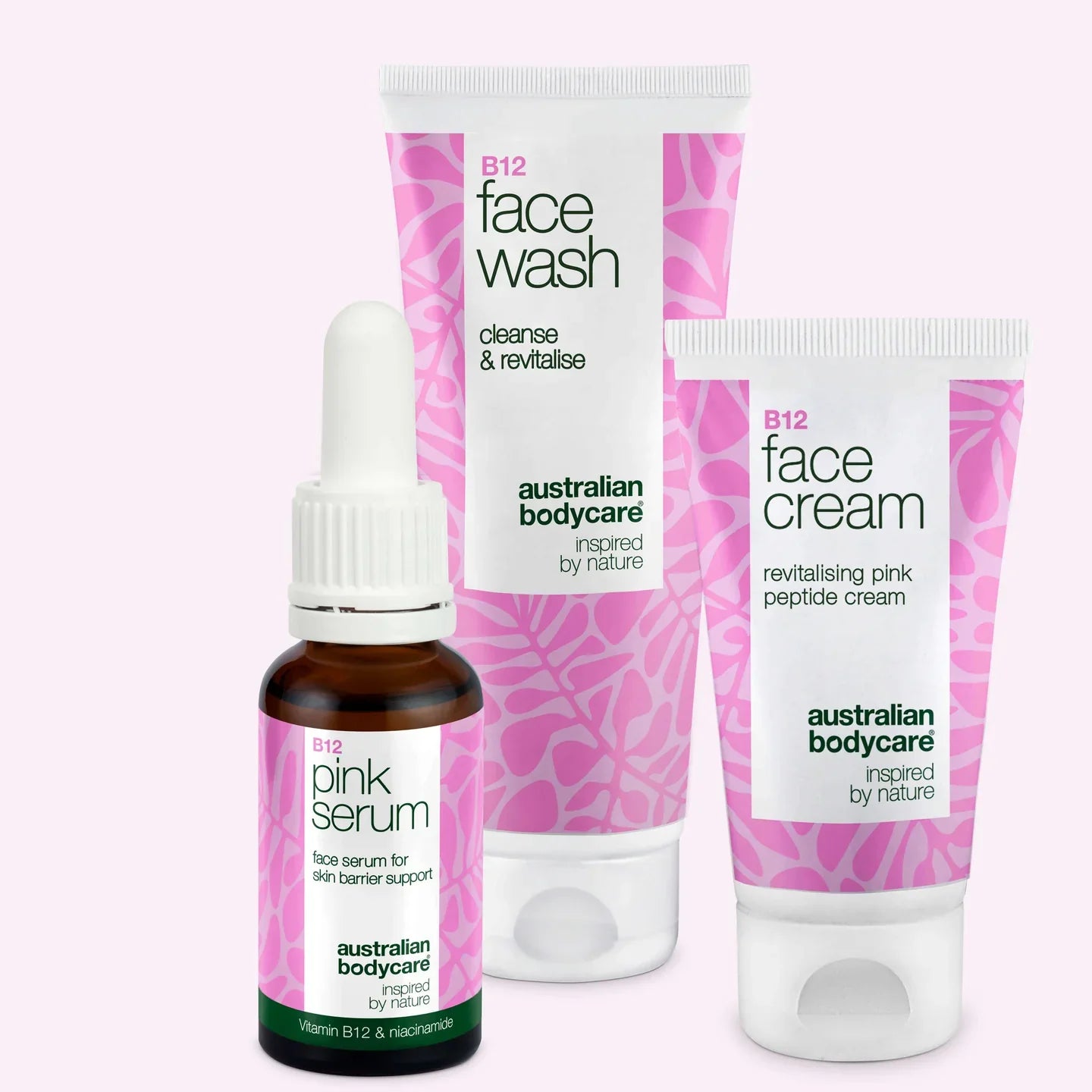Vaginal Fungal Infection – Symptoms, Treatments and Prevention
Table of contents
What is Vaginal Fungus?
Vaginal fungus is a very common and rather uncomfortable disorder caused by an infection from the Candida Albicans yeast. These yeast fungi live naturally on our mucous membranes, including the mucous membrane in the vagina: usually these are harmless, and we don’t even realise they are there. However, if there is a change in the bacterial balance in the vagina, this creates good growth conditions for the fungi. This can lead to a fungal infection with unpleasant symptoms (see more about symptoms below).
Jump to: Treatment of vaginal fungus
Read more: How can I treat itching in the vagina?
Video: How to stop itching down there
More information – Click here
Who Gets Yeast Infections?
Most women will, at some point in their lives, experience a yeast infection – either once or several times as a recurring problem. It is estimated that 3 out of 4 women will have a vaginal yeast infection at least once. Vaginal fungal infections are therefore a very common condition.
Why Do You Get Yeast Infections?
A vaginal fungal infection occurs when the natural balance of the vagina is disturbed. The natural discharge of the vagina is acidic (with a low pH), but if the balance is disturbed, a fungal infection may occur. This disturbance in the vagina can be caused by:
- Antibiotic treatment, cortisone therapy and immunosuppressive medication: For example, chemotherapy. When the natural lactic acid bacteria in the vagina are killed by these treatments, the fungus has room to multiply and grow, thus an infection can occur.
- Sexual intercourse: Semen is neutral on the pH scale, while the vagina is acidic. Therefore, intercourse can interfere with the natural balance of the vagina.
- Pregnancy/hormonal changes: During pregnancy, major hormonal changes occur in the body, including a change in the mucosa membranes inside the vagina. This may cause a fungal infection.
- Diabetes: When you have diabetes, you have increased blood sugar levels. These sugars may be stored in the mucous membrane of the vagina, thus causing a fungal infection.
- Excessive hygiene: Cleanliness is good, but excessive hygiene in the intimate area is not so good. You risk interfering with the natural balance of the vagina when you wash too often.
- Wearing tight underwear: If you often wear tight underwear, and/or pants made of a synthetic material, your genital area is not given space to breathe. This creates an enclosed, humid environment, which is perfect for the fungi to thrive in.
- Using panty liners, pads and tampons: As with tight underwear, using panty liners, pads and tampons will confine the intimate area. Daily use of pads or tampons (in particular) when you are not menstruating is something that gynaecologists warn against.
Are Vaginal Fungal Infections Contagious?
Vaginal fungus is an uncomfortable disorder, but fortunately it’s not dangerous to have a fungal infection in the vagina. However, you should treat your infection as soon as possible to eliminate it entirely, along with the irritation and itching.
You can infect your partner through sexual intercourse, but if he does not experience any symptoms he may not need treatment, and he cannot infect you. Women can infect men with a fungal infection, but men cannot infect women. For this reason, yeast infections are not considered to be a sexually transmitted disease. Usually the cause of the fungal infection is from an imbalance in the vagina, rather than catching the infection from another individual.
Symptoms: What Do Vaginal Yeast Infections Feel Like?
Yeast infections, also known as fungal infection in the vagina or vaginal fungus, is an uncomfortable disorder. All women who’ve had the infection will recognise the irritation if it occurs again. Three out of four women will experience it at least once in their lifetime.
You may have a vaginal yeast infection without detecting it, simply because you don’t experience any kind of discomfort or other symptoms. However, in most cases you’ll know straight away that something isn’t quite right.
The most common symptoms of vaginal fungal infections are:
- Intense itching, burning, tenderness, irritation and redness of the skin around the vaginal opening (labia).
- Discharge that’s white and thick (similar in consistency to cottage cheese). This vaginal discharge doesn’t usually smell.
- Pain and discomfort during intercourse.
- Stinging sensations when urinating.
However, these typical symptoms of vaginal fungus may also be caused by other disorders, so you should always let a doctor examine you if this is the first time you’ve experienced them. If you’ve had a vaginal yeast infection before, you will be able to diagnose yourself from the symptoms – but don’t overlook them. Always see a doctor if you have any concerns.
Vaginal Fungal Infections After Sex
Video: How to stop itching after sex
There are many different reasons why you have a vaginal infection. Sex may be one. Many women experience a fungal infection after intercourse. It’s not because the man has infected them, as it cannot be transmitted that way. The natural balance of the vagina can be disturbed by semen and thereby an infection can occur.
The vaginal environment is acidic with a normal pH of 3.8-4.2. The acidic lactic acid bacteria in the vagina protect you against infections and imbalances. Semen, on the other hand, is neutral with a pH of about 8. Semen can therefore interfere with the natural acidic balance. Condoms can also affect the balance of the vagina, so it is also worth noting when you get an infection and what caused it.
Tired of itching and irritation after intercourse?
Many women experience itching, burning and irritation after sex, which can be uncomfortable. If sex is the cause of the problem, it may help to use a gel that can alleviate dryness during intercourse. Australian Bodycare have developed a gel formulated with Tea Tree oil. Intim Glide is dermatologically tested and can alleviate vaginal dryness and intimate discomfort, as well as giving you both a more sensual experience.
Intim Glide from Australian Bodycare is a light, smooth and sensual gel. It contains the natural ingredient Tea Tree oil which can remedy the itching, burning, dryness and irritation that many women experience during and after sex.
Treatment of Vaginal Fungus
If you suspect that you have a vaginal yeast infection, you should find a treatment. In some cases, the fungus may disappear by itself because the body succeeds in re-establishing the natural balance of the vagina. Thus, this rarely happens and there is no need to suffer for a long time just waiting for it to go away by itself. Vaginal fungal infections are very easy to treat in most cases.
Your doctor can quickly determine if your symptoms (such as itching, burning, discharge, etc.) are caused by a fungal infection or something else. This can be done via gynaecological examination and by taking a small sample of the discharge. If you have previously had a vaginal yeast infection and you recognise the symptoms, you can simply take a trip to the pharmacy to buy the treatment yourself.
How Do You Treat Vaginal Yeast Infections?
The treatment for a vaginal fungal infection will restore the natural, acidic balance of the vagina. You can do this by a few different means:
- Vaginal cream to be applied directly on the affected area. You can buy different medicinal cream products at the pharmacy.
- Suppositories to be inserted into the vagina. In many cases, the doctor will recommend combining the two treatments; cream for the symptoms and a suppository to restore balance. The suppositories are also available to purchase at the pharmacy.
- Tablet treatment with pills to be taken orally. The tablets are prescribed, rather than being available at the pharmacy. This is not the most widely used method of treating vaginal fungus, but it is useful if the other methods do not work, or you have particularly severe (and repeated) cases of vaginal yeast infections.
Treatments with Natural Ingredients
There are a lot of old wives’ tales and advice that suggest you can treat vaginal yeast infections with natural yoghurt and similar sour milk products. There is no scientific evidence to suggest that these treatments will work, however some women do still claim them to be effective. It is strongly recommended that you use well-know, proven medicinal products to treat your fungal infection.
Femigel with Tea Tree Oil for Itching, Burning, Tenderness, Irritation and Redness Around the Vagina
If you prefer natural remedies to soothe the itching and irritation, ask your pharmacist or at the health food store for advice. Tea Tree oil, for example, is a well-known remedy for itching and irritation that can be used when you have a yeast infection. It is found in products like Femigel and Femi Daily from Australian Bodycare.
Femigel is a water-based, hormone-free gel that prevents itching and irritation. It helps restore a healthy and natural balance in the vagina as well as rebuilding moisture around the vagina and genitals.
Femigel can be used for extended periods of time, or daily if need, as it contains 100% natural ingredients. Traditional medicinal drugs, on the other hand, can only be used for a limited period, giving the body a break before a new treatment can begin.
Recurring Vaginal Fungal Infections
Unfortunately, some women are repeatedly affected by vaginal fungal infections. If you experience vaginal fungal infections more than four times in one year, you have recurrent or complicated fungal infections.
If you’ve only had a single vaginal fungal infection (uncomplicated), you can easily use the various treatments mentioned above. However, if you suffer from fungal infections repeatedly, this can be very problematic, as the traditional fungicidal medications can only be used for a limited period.
Prevention
Fortunately, very few women experience recurring vaginal fungal infections. You will most likely experience a yeast infection once and then never have it again. There is much you can do to ensure that vaginal fungal infections don’t become a recurrent problem.
How to Prevent Vaginal Fungus:
- Avoid excessive hygiene around the genitals. You should always wash your genitals with water, or a mild intimate cream or soap. Perfumed and scented soaps, however, should be avoided as they can unbalance the vagina and cause a fungal infection.
- Avoid unnecessary panty liners. Daily use of panty liners, pads and tampons is not a good idea as it makes your genitals enclosed and humid, which is a favourable environment for the fungi. Of course, it can be hard to avoid using panty liners if you are menstruating. If you change the pads and tampons regularly, and only use them when you are menstruating, you shouldn’t have any problems.
- Avoid tight underwear and synthetic materials. Tight underwear encloses the genitals and keep them hot and moist. This is the perfect environment for fungi to multiply and grow in. Underwear made of synthetic materials have the same effect. If you sometimes have problems with fungal infections or simply want to avoid them, it’s a good idea to wear cotton underwear and avoid tight pants altogether.
FAQs About Vaginal Fungal Infections
How do you get vaginal yeast infections?
Fungal infections occur when the natural balance of the vagina is disturbed. Some of the most common causes of this are: antibiotic treatments and other forms of medicine, sexual intercourse, hormonal changes during pregnancy, diabetes, excessive genital hygiene and frequently wearing underwear which is synthetic and tight, pads/inserts and tampons.
Will the yeast infection go away by itself?
In some cases, you may have had a fungal infection without knowing it as it’s gone away by itself. However, in the vast majority of cases it will not just disappear. You will usually notice the symptoms and should seek treatment immediately, so you can avoid the irritation and restore balance as soon as possible.
Can vaginal fungal infections infect men?
Yeast infections can infect men via intercourse. But the contagion cannot go the other way – men cannot infect women with fungal infections. Yeast infections are therefore not considered to be sexually transmitted diseases. If men are infected with the fungus, they should also seek treatment.
What are vaginal fungal infections called?
Vagina fungal infections are also known as; vaginal fungus, yeast infections or vaginal thrush.
What does vaginal fungus feel like?
Yeast infections are an uncomfortable disorder. The typical symptoms are severe itching, burning, tenderness and irritation of the vagina. A reddish rash is also common. Additionally, you may have a thick white discharge (similar in consistency to cottage cheese). Many also experience pain and discomfort during sexual intercourse and possibly stinging sensations when urinating.
How are vaginal fungal infections diagnosed?
Your doctor can quickly diagnose the problem, partly by conducting a gynaecological examination and by taking a sample of your discharge. If you have previously had a yeast infection, you will probably recognise the symptoms and be able to buy the treatment yourself at the pharmacy.
Can you get a bladder infection from a vaginal fungal infection?
Symptoms of bladder and vaginal infections can be very similar: both usually present as burning, itching, stinging when urinating, etc. And both vaginal and bladder infections occur when the natural acid balance of the vagina is disturbed. Bladder infections are typically caused by bacteria, but fungal infections in the vagina can also lead to a bladder infection. Both problems should always be treated, so seek medical advice if you experience these types of symptoms.
Can you die from vaginal fungal infections?
It’s uncomfortable to have a yeast infection but it’s not at all dangerous. You cannot die of a vaginal fungal infection. But if you do have a fungal infection, make sure it is treated: there is no need to put up with the symptoms.
Can you become sterile from vaginal fungal infections?
Fungal infections in the vagina are an uncomfortable, yet completely harmless disorder. You won’t become infertile because of a yeast infection, no matter how many times you have it.







